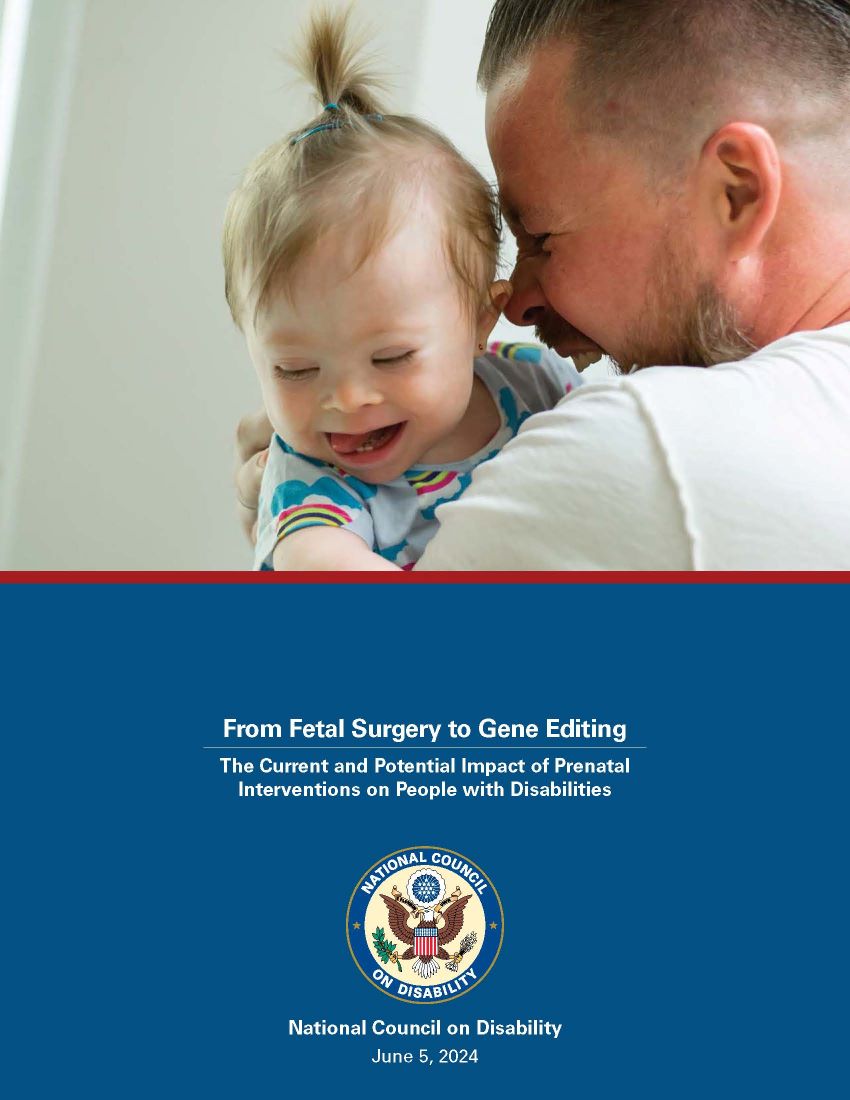From Fetal Surgery to Gene Editing: The Current and Potential Impact of Prenatal Interventions on People with Disabilities

June 5, 2024
SCOPE AND PURPOSE: Prenatal interventions can include a variety of technologies and applications ranging from prenatal screening, which is used in 72 percent of four million pregnancies in the United States each year, to fetal surgery, which is used to repair specific medical issues associated with conditions like spina bifida, to heritable human genome editing or human germline genome editing, which is not explicitly permitted in any county and is explicitly prohibited in 75 countries. These technologies carry unique practical, ethical, and disability rights implications and require guidance from policy experts, scientists, medical providers, disability and social justice advocates, researchers, bioethicists, and others. Despite the valuable insight that people with the conditions that would be targeted can offer, they have historically been excluded from determining research and funding priorities and from drafting policies and guidelines for prenatal technologies.
This report identifies the possible impact of these technologies on the disability community and, through public comment, listening sessions, and individual interviews, gathers input about recommended policies and practices to ensure that any prenatal technologies developed and utilized are determined by including people with disabilities as decision-makers who have experience living with various prenatally diagnosed conditions.
This report offers findings and recommendations for the Administration, Congress, and states to ensure any prenatal interventions do not disproportionately harm people with disabilities as a historically marginalized population.
KEY FINDINGS:
• A majority of medical professionals are biased against people with intellectual and developmental disabilities and convey that bias during prenatal conversations. These providers continue to need training about how to eliminate this ableist bias.
• The majority of patients are not receiving accurate, up-to-date information at
the moment of diagnosis and the way the information is presented often cause lasting trauma.
• Marketing incentives for adopting prenatal technologies are often steeped in the perpetuation of stereotypes and fears about disabilities.
• Lack of regulation of commercial prenatal testing has led to widespread confusion about the accuracy of tests among patients and providers.
• The forward momentum of technologies surrounding prenatal interventions without the scaffolding of education, ethics, and governance is traumatizing patients, fostering bias against people with disabilities, and creating systems inequities.

